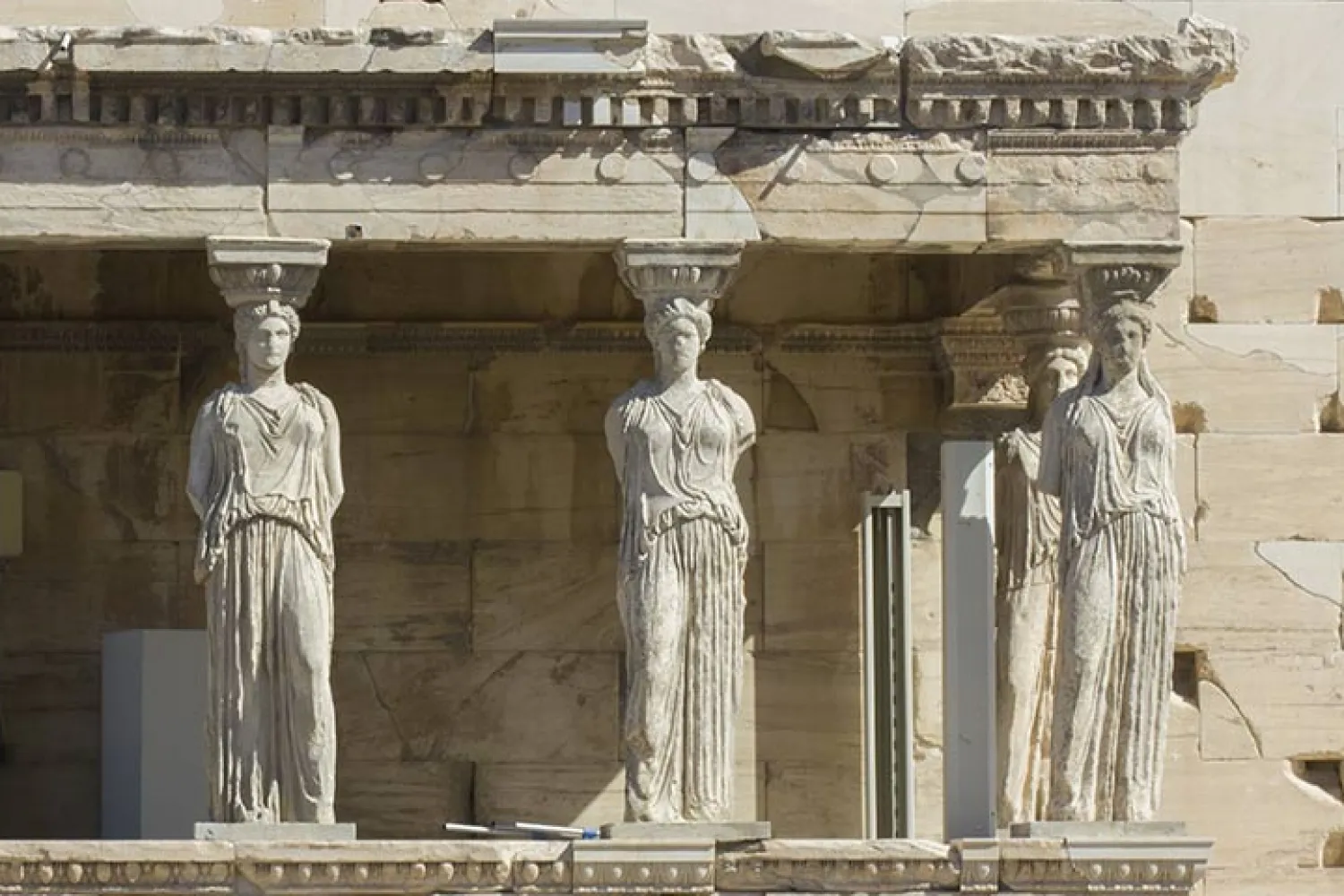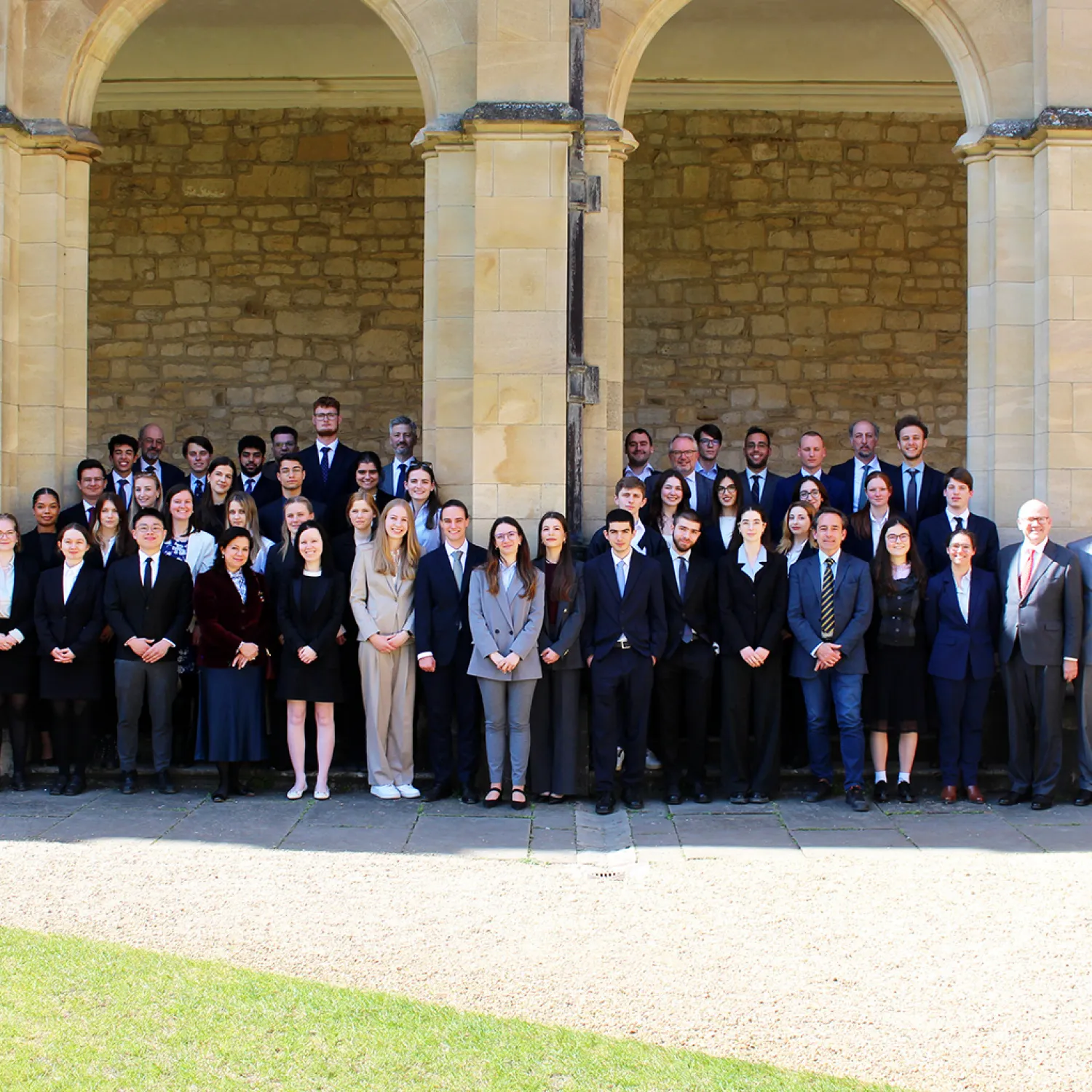Breadcrumb
Classics JRF Dr Hugo Shakeshaft awarded prestigious Arthur Kingsley Porter Prize by the College of Art Association
Dr Hugo Shakeshaft, JRF in Classics at Christ Church, has been awarded the Arthur Kingsley Porter Prize by the College of Art Association for his article, 'Beauty, Gods, and Early Greek Art: The Dedications of Mantiklos and Nikandre Revisited', The Art Bulletin 104.2, 20-46.
The Arthur Kingsley Porter Prize was established in 1957, in memory of a founding member of the College of Art Association (CAA) and one of the first American scholars of the discipline.
This award seeks to encourage high scholarly standards among younger members of the profession.
 The prize is awarded for a distinguished article published in The Art Bulletin during the previous year by a scholar who is under the age of thirty-five or who has received the doctorate not more than ten years before acceptance of the article for publication.
The prize is awarded for a distinguished article published in The Art Bulletin during the previous year by a scholar who is under the age of thirty-five or who has received the doctorate not more than ten years before acceptance of the article for publication.
One of CAA’s longest-running awards, the Porter Prize has been awarded to superb articles in Western European art and architecture but has increasingly recognized a wider range of topics (in American, Chinese, Japanese, and Assyrian art) since the 1990s'.
In the announcement of the award, the CAA jury wrote: 'In his groundbreaking article 'Beauty, Gods, and Early Greek Art: The Dedications of Mantiklos and Nikandre Revisited,' Hugo Shakeshaft transforms narratives around the topic of beauty in the religious art of archaic Greece.'
‘He moves away from such still-influential Enlightenment frameworks as Kant’s account of aesthetic autonomy and Winckelmann’s concern with timeless aesthetic values to examine the question of beauty from a historicizing vantage point.
‘In order to assess how beauty mattered for those who patronized, created, employed, and observed artworks in ancient Greece, Shakeshaft focuses on two anthropomorphic votive figurines—a bronze statuette dedicated by Mantiklos (ca. 700–675 BCE) and a marble life-size statue dedicated by Nikandre (ca. 660–630 BCE).
‘In his deeply researched discussion, he reconsiders these celebrated objects through a layered analysis of their forms, inscriptions, and materials as well as by reading them alongside aesthetic values expressed in the writings of Homer and Hesiod.
‘In particular, he calls attention to the ideal of charis, a rich concept that can be translated as “beauty,” “favor,” “gratitude,” and “grace,” to show how beauty was inextricably tied to ideas of reciprocity.
‘Ultimately, Shakeshaft posits that beauty needs to be treated as rigorously as any other interpretive category, and—far from being a universal—demands contextualized cultural awareness.'
Other Christ Church news



